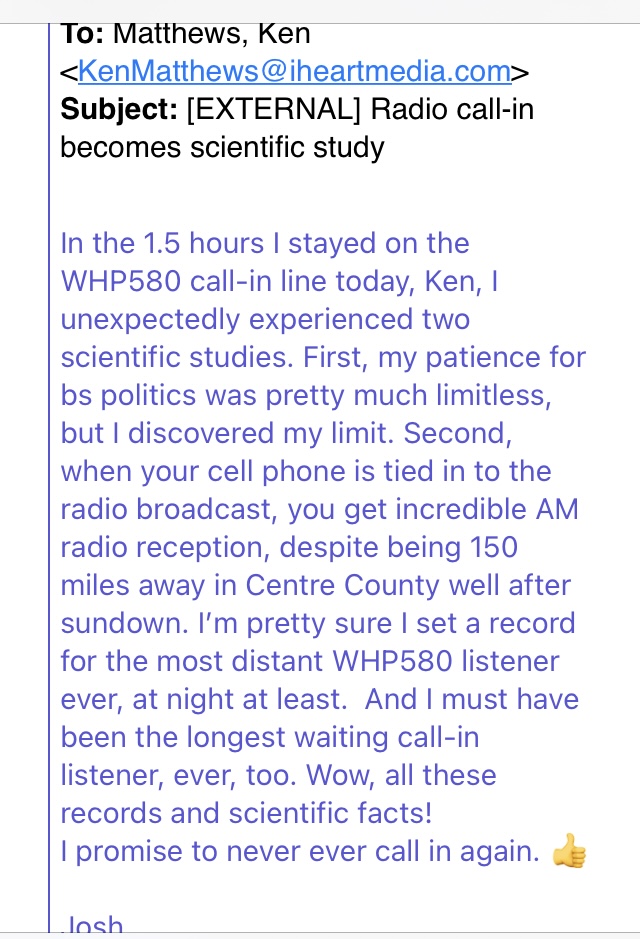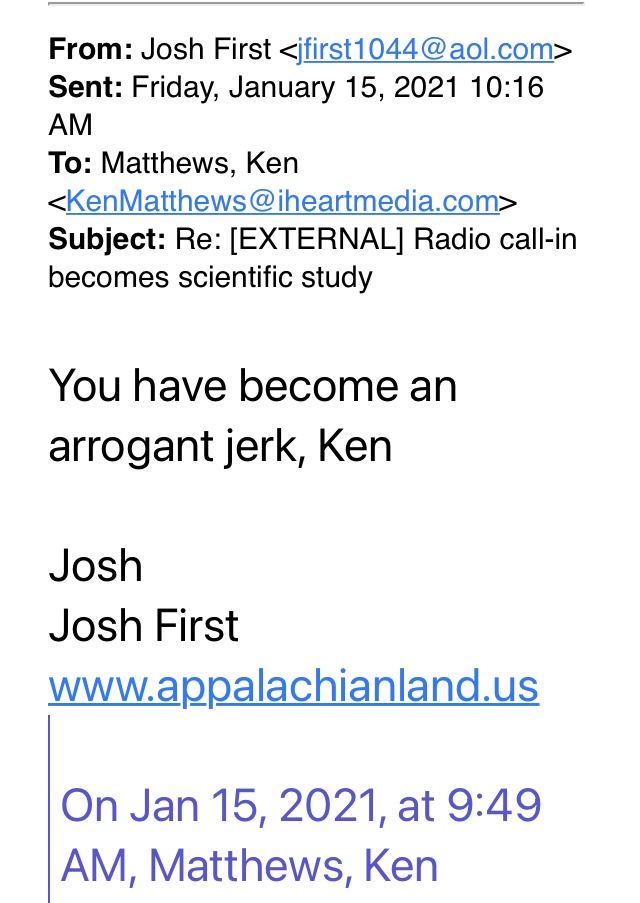Posts Tagged → dep
Anatomy of a primary election
On May 20th, Pennsylvania held its primary election. Mostly local seats and judgeships were on the ballot, which are definitely important, but the real prizes were the PA Commonwealth Court and the PA Superior Court. As has come to be usual here and in many other states, the conservative/ independent-minded grass roots fielded their candidates and the state Republican Party fielded its candidates.
And as usual, the PA Republican Party was directly involved in the selection of the primary election candidates, their endorsements, their negative attacks, funding, etc. When a political party gets in between The People and their choice of candidate, the party always loses in the long run. When The People believe the party does not share their views or values, and is only pursuing the selection of certain candidates who will be malleable and loyal to the party, then The People lose faith in the party.
Here in PA there is real animosity between grass roots conservatives and the PA GOP establishment.
This election we had grass roots candidate Maria Battista vs. PAGOP candidate political establishment-endorsed Ann Marie Wheatcraft for Superior Court judge. Battista had run before as the GOP endorsed candidate, and had lost to the grass roots candidate. This time around, for whatever reason, she was on the outs with the PAGOP and on the in with the grass roots groups, like Lycoming Patriots. Wheatcraft had the PAGOP endorsement and money.
For the Commonwealth Court we had well known Second Amendment attorney Josh Prince vs. unknown state bureaucrat attorney Matt Wolford. Bureaucrat Wolford was mysteriously endorsed by the PAGOP, even though he has worked most of his career at the PA Dept. of Environmental Protection, an agency that no matter which incarnation it embodies, and regardless of which political party is running it, nonetheless is associated with heavy-handed regulations and lawless bureaucrats who routinely beat up on private landowners and businesses. Not exactly a likely place to give birth to a solid Republican candidate for any office, much less a judgeship.
The long and short of these two races is that Battista the outsider defeated Wheatcraft the moneyed insider, and Wolford the party endorsed yet unknown bureaucrat and mystery “Republican” defeated grass roots favorite Prince. Moreover, Prince was endorsed by numerous organizations, like Gun Owners of America, Firearms Owners Against Crime, etc.
These are strange results.
Normally voters align with outsiders or insiders, but not with one candidate here and not that one over there. And yet that is what happened in this election. Normally, big endorsements gain big traction for candidates, but we saw no evidence of that in the Prince vs Wolford race. Despite his many big endorsements, Prince was utterly crushed even in very conservative rural counties, like Lycoming and Elk, where he was known, liked, and should have won handily. And yet, in these same counties, Battista blew off Wheatcraft’s doors.
Aside from a crooked vote tallying scheme, I have no explanation for this odd outcome that defies all odds and conventional thinking. Except for one possible variable that tends to get overlooked these days, and that is ballot position. That is, where does the candidate’s name fall on the ballot – top, middle, or last.
Studies have shown that ballot position does matter, or it can matter, but much less so when voters feel compelled to look up candidates on the internet. With its easy information access, the internet has been the great leveler of campaigns everywhere. Big campaign money cannot always defend a candidate’s bad record, which will be all over the internet, visible to the voters who but follow a few clicks on a search engine.
Battista had top and Prince had bottom on their respective ballots. Meaning that the 3/4-4/4 super voters who make up the primary election electorate, were unsure of who to vote for and simply and superficially chose the first name they saw for each position. That could explain the opposite results we got for both candidates, Battista and Prince.
As we see here, the voters have to want to know something about the people they are voting for in order to defeat the ballot position factor, as well as overcome often superficial campaign advertising. And so we learned a hard lesson here: The vaunted and lauded super voters did not necessarily do super research into the candidates. They apparently did not bother to look up the candidates before walking into the voting booth. They simply saw a name at the top and made their choice.
And that is the gory anatomy of Pennsylvania’s 2025 primary election, God help us all.

Does ballot position really determine who a lot of primary election super voters choose? From this election, it would seem so.

Elk County is a very conservative rural place where DEP bureaucrats are hated like poison ivy. The 2025 results there make no sense, unless ballot position is the primary factor.

Doesn’t it seem mean spirited to not even mention candidate Josh Prince? Doesn’t it further alienate his supporters? What is that all about?

I have never seen election results like this. If conservative rural Lycoming County super voters feel so strongly about conservative candidate Battista, they for sure would have felt just as strongly about conservative candidate Prince. And yet…the results seem to prove that ballot position is the most important determinant
Why Ken Matthews’ show was terminated at WHP580 AM
In 2013 or 2014, radio personality Ken Matthews followed the late and great gravelly voiced, cowboy hat wearing, hard charging, chiseled face long time prime time radio host Bob Durgin here on Harrisburg, PA’s WHP580. While Bob frequently talked about the Pennsylvania Department of Environmental Protection’s most recent ridiculous and pointless regulation that had squashed Mabel’s farm stand, or that had SWAT raided some little girl’s lemonade stand, which, believe me, all resonated here in Central PA, Ken Matthews brought a broader and more general American government policy discussion.
Like most conservative talk show hosts today, Matthews hit the daily or weekly zeitgeist of subjects and issues, from the global warming/ global cooling/ global whatever hoax to regional politics to the 2020 stolen election. But when he first arrived, it was clear that Matthews was working hard to impress the radio station engineers. And it was clear that they were making him work at it, because his first few months on air were a little tense. Listeners could feel that tension, and it seemed that Matthews might just be a fly-by.
Eventually, Matthews and WHP580 engineer Art Selby hit their rhythm, and the show took off. When he first arrived in town, I did some amateur on-the-ground citizen reporting “live from the Perry County court house!” for Ken. I frequently called in to the show or sent an email, either of which Ken would almost always take on air. After all, I have been involved in politics and culture battles for a long time, and I try to offer substance. And for a long time it felt like I, too, had a quiet, good rhythm with Ken Matthews.
But then somewhere around 2019 Ken changed. He became more popular, more self-aware, more self-important. He did some radio shows for Rush Limbaugh, and suddenly Ken’s on- air voice changed. His personality changed. His patience with callers changed. His voice was clipped. He sounded snooty. It was obvious that Ken Matthews was awfully proud of Ken Matthews, and that he looked down on just about everyone. Because he was important, ya know.
My last interaction with Ken was mid-January, 2021, I think when his radio show became nationally syndicated and Ken was feeling especially very important. While I was on a long drive returning a car trailer to a garage in rural Centre County from Harrisburg, a very low, unimportant-person kind of thing to do…I suppose. Below are the screen shots from our emails that immediately followed my being on hold for half of Ken’s entire three hour show. What was so important at my end? Well, I wanted to share with Ken and his listeners my own law-abiding experience in Washington, DC, on January 6th. It was exactly the kind of call-in Ken used to take, about a subject he was covering.
I actually ended up staying on hold just because I was fascinated at the technology at play. My truck’s own AM radio had long since lost contact with WHP580, but here I was clearly connected via a tenuous but unbroken cell phone call. Driving across the lightless, deep darkness that is rural Central PA in winter time, hearing WHP580’s on-hold show through my bluetooth connection made me feel a bit like an astronaut floating way out in space, far from Earth, yet with a very slight connection to the Houston control room back home. It was both fascinating and a little assuring.
As you can see from the emails below, Ken’s snarky, disrespectful responses showed he relished keeping me on hold. He was enjoying being mean. I don’t know why he didn’t just get on the phone with me during a radio break and say that he didn’t want to talk about January 6th, or why he didn’t simply ask call screener Art Selby to come back on and tell me they were not going to take it (Art had told me they would take the call) (And why not just send a normal email response that says “I am sorry you think that”). Instead, Ken enjoyed being a jerk, even and especially when someone he knew was a loyal follower told him he was. Ken’s sense of personal power and self importance took over his brain. Making people feel badly made Ken feel good.
And that is exactly what got Ken’s nationwide radio show canned two weeks ago. Ken Matthews’ ever increasing on-air arrogance eventually overrode his professionalism so egregiously that he was terminated on the spot. His behavior has been called a “slip-up,” a hot mic moment etc. But the actual truth is Ken Matthews had long since cared little about what other people thought or think, because he had become way too important.
While I felt stung that January night on my way up north, my desire for revenge against Ken for treating me like a jerk was gone a few hours later, by the time I got back to Harrisburg late that night. Afterwards, I never called or wrote in to the radio show, and only quite infrequently listened to it. Because let’s face it, Mark Steyn, Mark Levin, and a bunch of other radio hosts all do pretty much the same format and content. And listeners can hear pretty much the same thing, without having to listen to Ken Matthews’ self-important, arrogant voice grating on your ears.
It had been my long time loyalty to local station WHP580, and the occasional local story flavor, that had kept me listening to Ken Matthews for several years, during his transition to “stardom” and then after he had become an all-out on-air jerk. All that shred of loyalty ended with the email exchange below in January 2021.
So I am not happy that Ken Matthews got his come-uppance. But boy, did he need it. And he earned it. Hopefully he learns from this experience, but it is doubtful he will.
SB 619 captures tug of war between big government and the citizenry
SB 619 is PA state senator Gene Yaw’s fix to a problem that should not even exist. And yet, this bill is being greeted by so-called environmental advocates as some sort of “attack” on environmental quality and environmental protection.
Senate Bill 619 is about one simple thing: Making Pennsylvania state government regulators spell out exactly what is, and what is not, an environmental spill that is so bad that it contaminates waterways and is a violation of our state “clean streams” law.
You would think that in late 2019, 243 years after the founding of America, all state governments would be run by responsible adults who are committed to the wellbeing of their fellow citizens first and foremost. A commitment like that would first and foremost be to the rule of law and the due process rights that undergird and frame everything that is American representative government. Simply put, the government cannot willy nilly decide for itself, based on ambiguous, general, opaque, undefined, arbitrary standards, what is an environmental contamination, and what is not an environmental contamination.
In representative government, We, The People are entitled to know our boundaries, where the borders are to our behavior, and where the government gets to step in and correct us. This understanding keeps us from making decisions in good faith that end up getting us entangled with government enforcers who hit us with fines and penalties for making an incorrect decision.
Presently, and unbelievably, the Pennsylvania Department of Environmental Protection has no clearly defined standards for what qualifies as a reportable spill and contamination into a waterway. PA DEP’s entire standard is, get this, for real: “We will know it when we see it.”
Folks, I am not exaggerating, I am not making this up. This is how much infinite latitude the state government has now and wants to maintain. This means that literally every time something – a cup of coffee, a can of paint, a bucket of mine sludge, or any miniscule part thereof – falls from its original container into the environment, and into or next to a waterway, it must be reported to PA DEP. And PA DEP reserves the right to fine whoever is responsible, irrespective of whether or not that spill involved anything dangerous, toxic, or at such a small dilution that it is de minimus in its effect.
In practice, this means that PA DEP both chases its tail going after ridiculously unimportant “spills” that pose no threat to anything, which underserves the citizenry who underwrite PA DEP’s budget, and that the agency also holds a huge arbitrary hammer over the head of every single citizen, contractor, and industrial or commercial operator in or passing through the Commonwealth. While being arbitrary is bad enough, reports from the field – you know, the little people who actually work outside getting stuff done for the rest of us consumers – is that plenty of PA DEP staff use that arbitrary standard in capricious ways. These PA DEP staff are, simply put, empowered to be vindictive and petty little tyrants whenever they want to be.
To their shame, the opponents of SB 619 are acting as if the bill is some sort of assault on environmental quality, when it is not, not even close. The PA Fish & Boat Commission is actually on record opposing SB 619 because it allows for “interpretation” in the law. This is embarrassingly bad government to say things like this. Needless to say, the private sector opponents of SB 619 say even worse and less accurate things than the PFBC has written.
Can you imagine something so horrid as there being two sides to a story, some “interpretation” about what happened, and not having just one omnipotent government agency position, take it or take it, because you can’t leave it, because the government agency has 100% of the say in what happened, and you can’t figure it out until some government employee tells you? Is it really so terrible to rein in our government agencies and require them to live by defined standards like the rest of us have to live? Like our Federal and State Constitutions require? Like a whole bunch of other states already have?
SB 619 simply asks PA DEP to establish criteria and standards so that the citizenry and the industries they work in can know when they are following the law, and when they are not. It asks government employees to live by the rules everyone else must live by. It asks government to not engage in arbitrary and capricious behavior, which undermines everything our Republic and our Commonwealth are about. You know, that liberty and freedom stuff that seems so insignificant to the self-appointed guardians of environmental quality. One thing is clear: My fellow environmental professionals may care about the environment, but they do not care about democracy or good government.
This bill is not about environmental quality, it is about democracy, the role of government, good government, government transparency and accountability, and limits on government power. It represents the tug of war going on nationwide between people who want unfettered big government power, and those of us who want government to live within the Constitutional boundaries everyone else lives in.
SB 619 needs to be implemented now.






